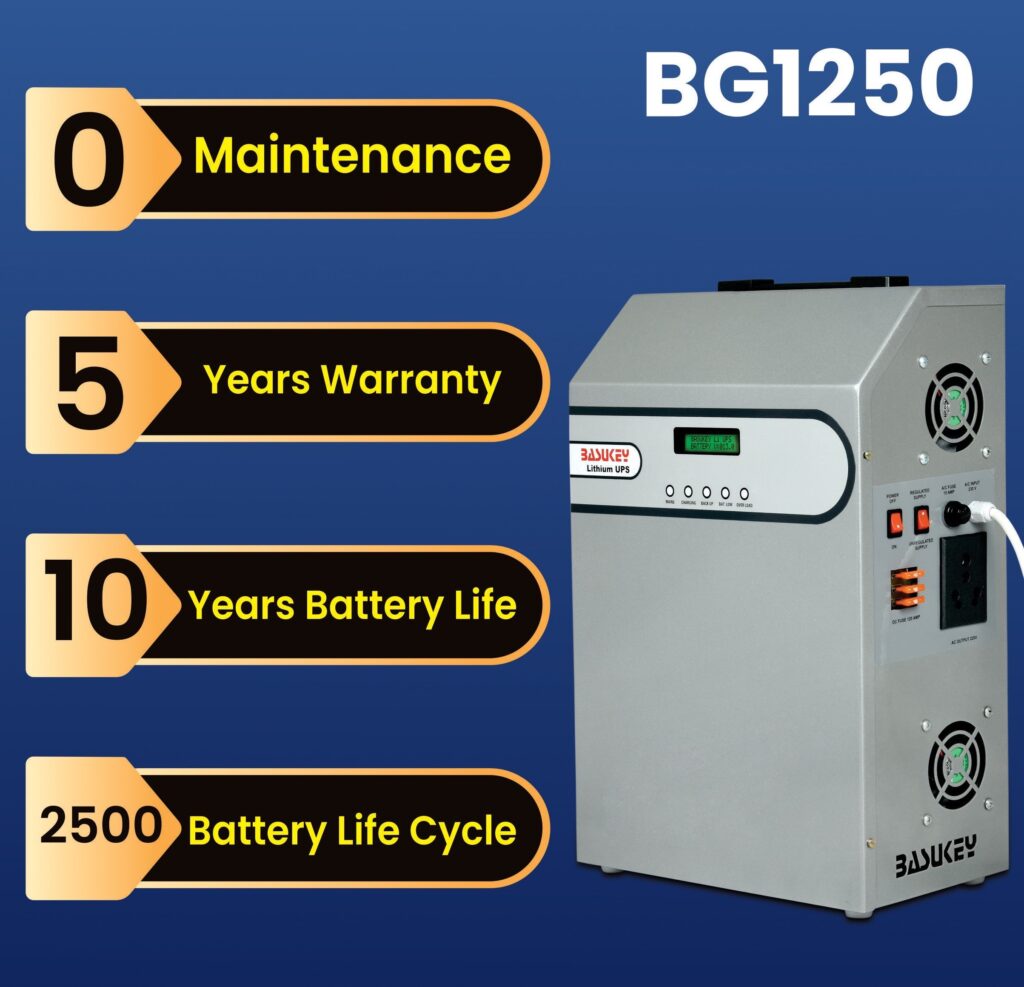How Lithium-Ion Batteries Are Revolutionizing UPS Performance and Sustainability?
Lithium-ion batteries are bringing about a significant shift in Uninterruptible Power Supply (UPS) systems, reshaping how we think about energy storage and power backup. As power reliability and environmental concerns gain prominence, lithium-ion technology is emerging as a game-changer in enhancing UPS functionality and sustainability. Here’s how lithium-ion batteries are transforming the performance and eco-friendliness of UPS solutions.
1. Prolonged Operational Life and Dependability
One of the most important ways that lithium-ion batteries are changing UPS systems is by offering a longer operational life and greater dependability. While traditional lead-acid batteries usually need replacement after 3-5 years, lithium-ion batteries can last between 10-15 years, reducing the need for frequent replacements and cutting down on disruptions to critical systems.
For industries where continuous uptime is essential, such as hospitals, financial institutions, and tech-driven sectors, lithium-ion UPS systems provide the reliability needed to keep systems running without frequent interruptions for maintenance or replacement.
2. Accelerated Recharging
Lithium-ion batteries recharge at a much faster rate than lead-acid batteries, which often take several hours to restore full capacity. The quicker recharge capability of lithium-ion systems makes them well-suited for areas with frequent power instability or outages. This ensures that the UPS system is ready to provide backup power shortly after an interruption, keeping essential operations running smoothly.
In sectors like telecommunications, emergency services, or manufacturing, this rapid recovery can mean the difference between continued productivity and costly downtime.
3. Increased Energy Conversion Efficiency
Lithium-ion batteries provide superior energy conversion compared to conventional lead-acid batteries. With less power lost during the charging and discharging process, more of the electricity drawn is stored and made available when the UPS system needs to kick in. This leads to more effective power use and lower energy bills.
This increase in operational efficiency makes lithium-ion UPS systems an attractive option for organizations looking to cut energy consumption and improve their sustainability profiles.
4. Compact and Lightweight Design
Lithium-ion batteries are significantly smaller and lighter than traditional lead-acid options. They can weigh up to 60% less and take up much less physical space, which is a key advantage in environments like data centers or server rooms where every inch of space matters. The reduced size also makes these systems easier to install, transport, and maintain.
This compact footprint allows organizations to maximize available space, giving them more room for equipment or infrastructure expansion without the bulk of traditional UPS systems.

5. Higher Power Density
Lithium-ion batteries offer a higher energy storage capacity per unit of volume, allowing UPS systems to provide more power without increasing in size. This energy density makes lithium-ion UPS systems ideal for environments that need high power outputs in smaller spaces, such as IT facilities or telecom networks.
This scalability and adaptability give businesses more flexibility when upgrading or expanding their power backup systems, ensuring they can meet growing power demands without requiring additional space or costly system overhauls.
6. Low Upkeep and Cost Savings
Unlike lead-acid systems, which require regular maintenance and monitoring, lithium-ion batteries require minimal upkeep. Lead-acid batteries need periodic inspections, fluid checks, and more frequent replacement, while lithium-ion systems are largely self-sufficient thanks to advanced monitoring systems that track battery health and performance.
Although lithium-ion UPS systems may come with a higher upfront cost, the lower maintenance, fewer replacements, and reduced downtime lead to substantial savings over the long term, making them an attractive investment for businesses focused on cost efficiency and long-term reliability.
7. Eco-Friendly Design
Lithium-ion batteries are not only more efficient but also have a lower environmental impact. Their longer operational life means fewer batteries are manufactured and disposed of, helping reduce electronic waste. Additionally, they contain fewer hazardous materials than lead-acid batteries, which require careful handling and recycling due to their toxic contents like lead and sulfuric acid.
Lithium-ion UPS systems also consume less energy, making them a greener choice for companies looking to minimize their carbon footprint and meet sustainability goals.
8. Wide Operating Temperature Range
Another major advantage of lithium-ion batteries is their ability to perform reliably in extreme temperatures. Whether in freezing conditions or high-heat environments, lithium-ion UPS systems remain stable and effective, whereas traditional lead-acid batteries may degrade or lose capacity in such situations.
This makes lithium-ion UPS systems particularly useful in harsh climates or industrial settings where temperature control isn’t always possible, providing a dependable power source regardless of environmental factors.
9. Scalability for Growing Power Needs
As businesses evolve, so do their power requirements. Lithium-ion UPS systems are designed with scalability in mind, allowing them to easily expand to accommodate increased energy demands. Their high energy density ensures that businesses can add more power capacity without needing to significantly increase the physical size of their UPS infrastructure.
This flexibility enables organizations to seamlessly scale up their power backup systems in line with growth, making lithium-ion batteries a forward-thinking choice for future-proofing power needs.
How Lithium-ion Batteries Are Transforming UPS Performance and Sustainability?
Conclusion
Lithium-ion batteries are revolutionizing the way UPS systems function, offering enhanced performance, reduced maintenance, and superior sustainability. Their longer lifespan, rapid recharge times, compact size, high energy efficiency, and eco-friendly design make them the ideal solution for modern power backup needs. While the initial investment may be higher, the long-term savings and reduced environmental impact make lithium-ion UPS systems a strategic choice for businesses focused on both operational efficiency and sustainability.
As the demand for reliable power solutions and sustainability continues to grow, lithium-ion technology is positioned to lead the charge in transforming UPS systems into the future of energy storage and backup power.
